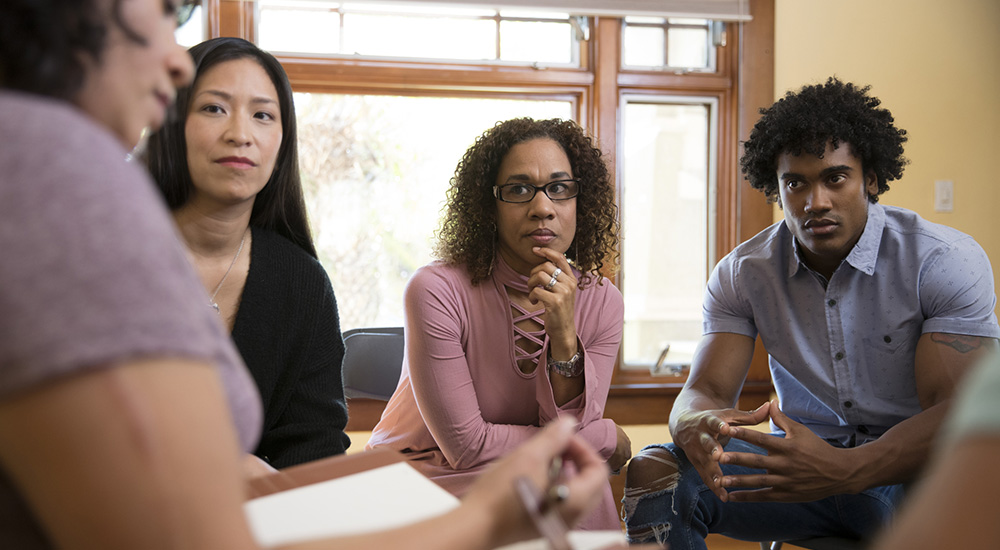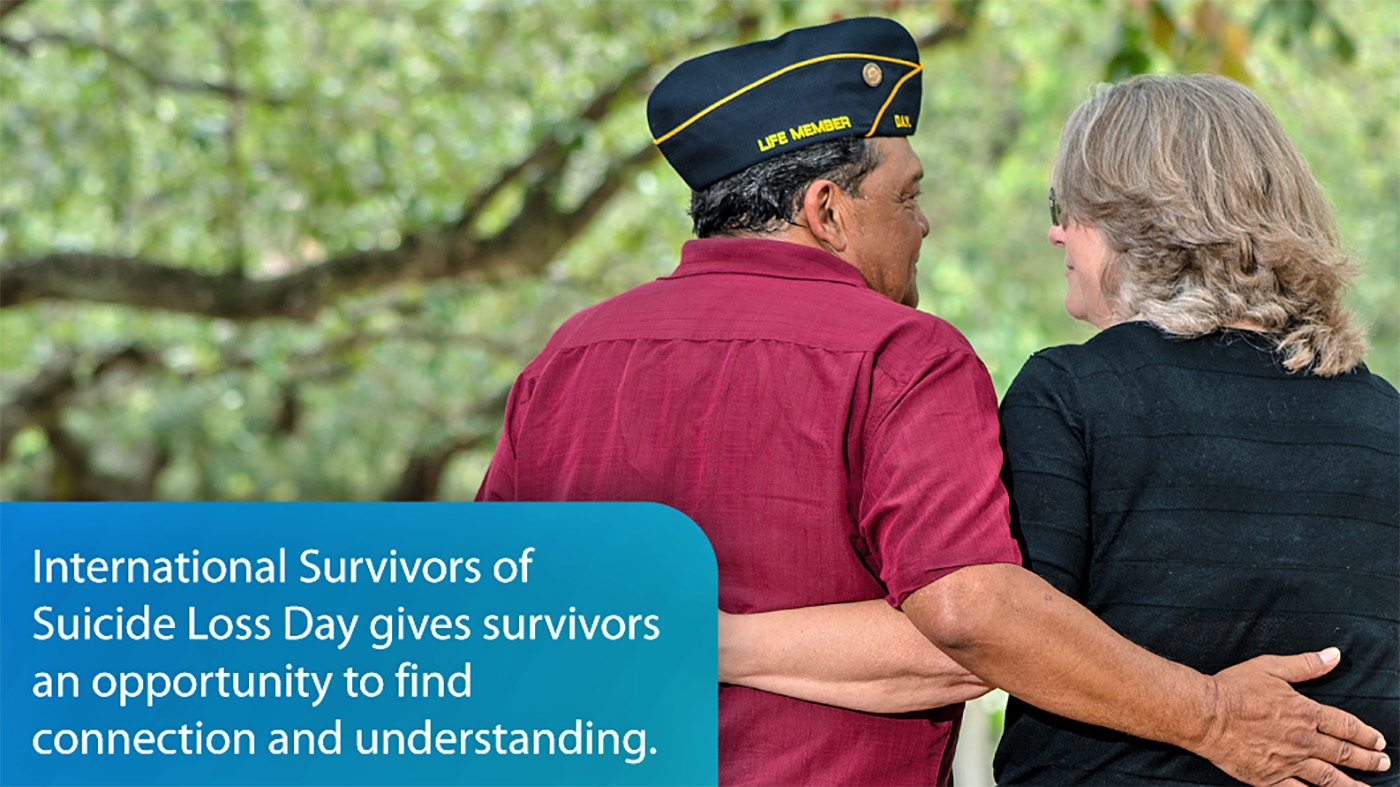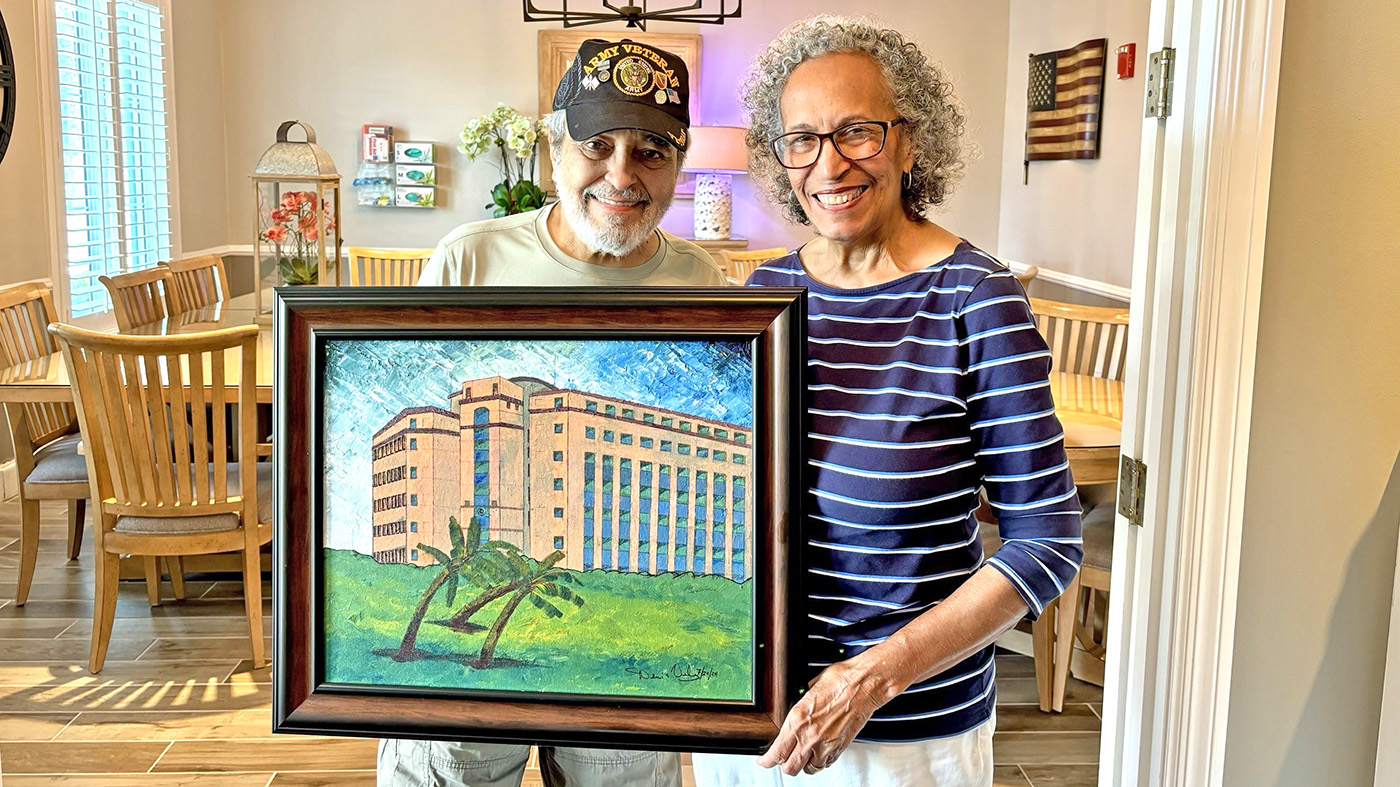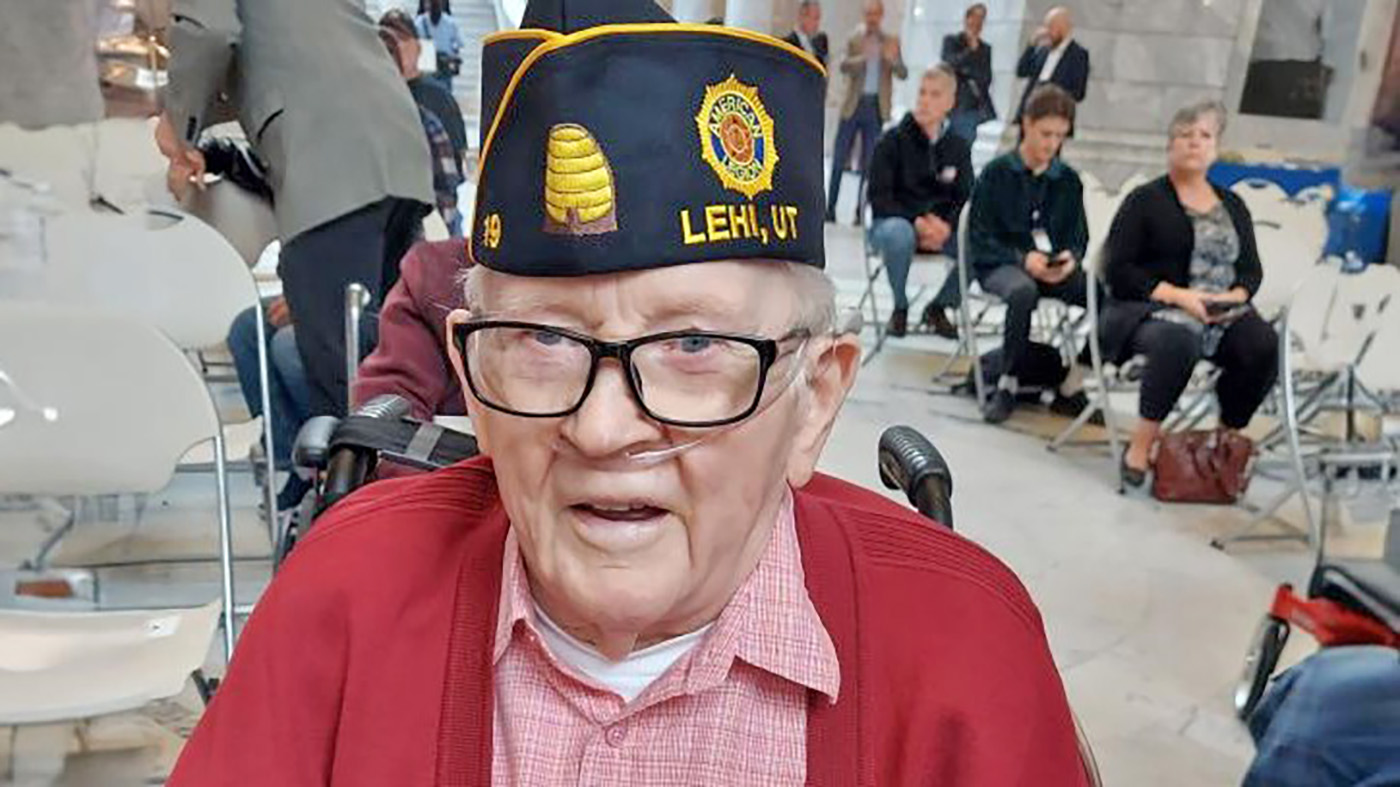Most of us do better when we are part of a social network and surrounded by people who care about us. As a result, involving a Veteran’s close family members and friends in his or her mental health treatment can have many benefits.
Benefits include improving Veterans’ treatment satisfaction and their ability to cope with mental illness or emotional challenges. It also enables them to enjoy a richer, fuller life.
Involving family, friends in mental health treatment
Many Veterans want to involve family and friends in their care but don’t know how to start. The Veteran-Centered Brief Family Consultation (VCBFC) allows providers to involve loved ones in a Veteran’s mental health care.
VCBFC helps Veterans decide who they want to support them in their recovery. They can involve family members, friends and other encouraging people. Sessions may include only the loved ones, or the Veteran as well as his or her family and friends.
What is VCBFC?
VCBFC focuses on problem solving and decision making. There usually are one to three, but no more than five, brief sessions. The Veteran and loved ones work with the care provider to agree on topics related to the Veteran’s well-being. Topics may include conflict resolution or making a mental health support plan. VCBFC is not traditional family therapy, therefore it does not focus on past family issues.
Family consultation sessions vary depending on the Veteran’s goals. Sessions might include:
- Information about mental illness.
- Ways for loved ones to support the Veteran’s path to recovery.
- Support for family members and other caregivers.
- Ways to advocate for the Veteran.
- Communication and/or problem-solving skills training.
- Referrals to mental health resources.
- Liaison with other mental health and rehabilitation services, both inside and outside VA.
Who are good candidates for VCBFC?
Veterans may benefit from VCBFC sessions if they:
- Have frequent relapses or are at risk for relapse.
- Often have mental health symptoms that interfere with their daily life.
- Need support to navigate a transition point in life.
- Rely a lot on others.
- Experience suicidal urges or thoughts.
Others who may benefit include:
- Family members and others invited by the Veteran who need education or support.
- Family members who frequently contact the treatment team.
- Those who are considering family therapy and wish to take a first step in assessment or treatment planning.
How do I get involved?
Your mental health provider can provide more information on VCBFC. To find a provider near you, use the VA locator tool.
Family and friends of Veterans can find information at: www.mentalhealth.va.gov/families/index.asp.
Noosha Niv, Ph.D., is a clinical research psychologist. She specializes in family and couples’ therapies and psychosocial treatments for severe mental illness. She is the national education director for the VA Mental Health Centers of Excellence, as well as the director of the VISN 22 MIRECC Education and Dissemination Unit. Niv also serves as an associate project scientist at the University of California – Los Angeles.
Topics in this story
More Stories
If you’ve lost a loved one to suicide, resources and support are available to help you cope during your grieving and healing.
Army Veteran Denis Velez donated a painting of his VA hospital as a way of giving back for his treatment there.
Ron Anderson's story of being caregiver for his father in his final years is a journey of love and duty.







Can you explain the support and counseling available through the Vet Centers?
Why were the VET Centers and their support services not mentioned in this article ?
Thank you.
Thank you for writing this blog. These men and women I’ve sacrificed so much so we can have our freedoms that we take for granted so often. This is an absolute disgrace and help every single veteran eventually gets help from somewhere. Suicide rates and homelessness among veterans is disgusting and our leaders just giving speeches is not enough